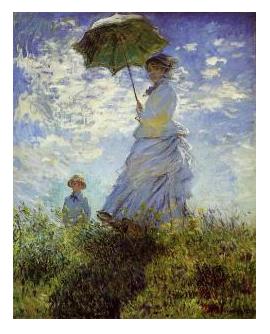Friday, March 20, 2009
Brave New World: Final Discussion
Here are a few questions that I would be interested in discussing. Feel free to make your own observation or remark.
1) What is Huxley saying about religion and society?
or
2) What is Huxley saying about human nature?
or
3) Why does the Savage feel the need to be self-flagellating?
Subscribe to:
Post Comments (Atom)


I thought the second to the last chapter had some poignant comments on happiness and the human condition but I left my book somewhere so can't quote :(
ReplyDeleteI think the Savage feels the need to be self-flagellating because bad things have happened to him but those bad things haven't turned him into a bad person - He didn't fit in entirely and was mistreated because of it and that mistreatment was normal for him so it follows that mistreating himself would also be normal.
Also, I think he appreciates that things don't or shouldn't come too easy, so if something appears to come too easy, like the girl, then he has to make it more difficult to make her appear to have more value.
He's in the midst of existential crisis and he doesn't know how to deal with it in any way other than beating himself up and so feeding the angst-filled fire. I don't think he's comfortable or familiar enough with himself to just accept and be different and he's sort of trapped in this place where he doesn't fit in here or there - the idea of being in the borderlands is absolutely perfect. Maybe he wants to punish himself for not fitting in.
How does Huxley feel about the existential crisis faced by the Savage?
ReplyDeleteIn the last few chapters, Marx, Watson, and John have a conversation with Mustaphe Mond about human nature. Mond contends that, by necessity, human societies must choose between happiness, a term that he uses interchangeably with stability, and high art, which he equates to soul searching. He admits that soul searching has it rewards, but he reminds his visitors that these rewards can only be realized after the individual has endured emotion turmoil and self-scrutiny--the eternal existential inner-conflict:
"Actual happiness always looks pretty squalid in comparison with the over compensations for misery. And, of course, stability isn't nearly so spectacular as instability. And being contented has none of the glamour of a good fight against misfortune, none of the picturesqueness of a struggle with temptation, or a fatal overthrow by passion or doubt. Happiness is never grand."
The way that Huxley puts it, neither of these options sounds particularly appealing.
Does Huxley see a solution to this dilemma? Does he believe that the only solution is for humans to suffer through their existential quandary in order to realize fleeting moments of happiness? And, how does the Savage figure into all of this? He seems to be fully engaged in this existential quest, yet at the end of the book Huxley leaves us with the image of the Savage continuously whipping himself while living a life of self-imposed exile on piece of land completely removed from the rest of society. Does the Savage ever benefit from this perpetual repentance?
Samson quoted: "Actual happiness always looks pretty squalid in comparison with the over compensations for misery. And, of course, stability isn't nearly so spectacular as instability. And being contented has none of the glamour of a good fight against misfortune, none of the picturesqueness of a struggle with temptation, or a fatal overthrow by passion or doubt. Happiness is never grand."
ReplyDeleteThat's the passage that stuck with me too. I took it at face value until just now...now I think its manipulation and brain washing on Mustaphe's part. Mustaphe knows that calling BNW happy will plant the idea and make the Savage (us) consider that it is happiness when its really just a contrived stability. Following it up with a true statement about contentment makes us even less likely to question the existence of "happiness" in BNW...the thing is, real happiness probably is grand because its a state elevated above baseline...if it were baseline it wouldn't register as happy. I think Huxley had a pretty good grasp of the subtleness of psychology in writing this.
Rather than looking at it like the Savage is stuck in a state of perpetual repentance, I see it as choosing the possibility of real emotion and feeling, or even future enlightenment over an entire lifetime of "happiness," which for him, would more aptly be called complacency. The cost of true happiness is being open to true unhappiness and I think the Savage realizes this. The Savage may be miserable to be in existential crisis, but its better to have the freedom of thought than to just be another drone.
Honestly I'm just ready for the next book. There was a lapse and I finished the book, finished another book, and am involved in another. I thought we were done with this one. Let's keep it moving! Book suggestions? I've got some.
ReplyDeletei say longer assignments definitely (which would also mean fewer assignments), we just came back to the same topics too many times. but overall, i really enjoyed the discussions.
ReplyDeleteI recommend Narcissus and Goldmund by Herman Hesse (known for his work Siddhartha). The abstract on the back of the book reads:
Hesse's novel of two medieval men. one quietly content with his religion and monastic life, the other in fervent search of more wordly salvation. This conflict between flesh and spirit, between emotional and contemplative man, was a life study for Hesse. It is a theme that transcends time.
suggestion #2: i have not read any dostoevsky in my life. any of those that have not been read.